4 CHALLENGES IN RESOURCE DEVELOPMENT
At the scientific workshop "Strategic breakthrough in human resources, especially high-quality human resources in the new context" organized by the Central Propaganda and Mass Mobilization Committee, the Ministry of Health , and the National Political Publishing House Truth at Hanoi Medical University on October 8, many experts analyzed the reasons why the expectation of a breakthrough in human resources development strategy, although set for a long time, has not yet come true.

Innovation in training, prioritizing skills that practice requires is one of the solutions for human resource development.
PHOTO: NHAT THINH
According to Associate Professor Vu Van Phuc, former Editor-in-Chief of Communist Magazine , in all three recent congresses we have proposed strategies for developing human resources, especially high-quality human resources, but so far we have not achieved what we expected. In the draft documents of the upcoming 14th National Congress, our Party continues to emphasize that developing human resources and high-quality human resources is still a breakthrough strategy. The question now is what to do in the coming time, what lessons can we learn from our own story?
According to Dr. Nguyen Si Dung, former Deputy Head of the National Assembly Office, Vietnam is currently facing four major challenges that need to be overcome in the issue of human resources. One is that the quality of human resources is not commensurate with development requirements. Vietnam's labor productivity is only 7.4% of Singapore, 17.4% of South Korea and 36% of China. We are seriously lacking in "yellow collar" industries - highly skilled technicians who are capable of operating and innovating technology. Many FDI enterprises complain that it is difficult to recruit highly skilled workers and professional managers.
Second, the gap between skills and market practices is still too large. According to a survey by Manpower Group (2023), more than 54% of businesses in Vietnam said that workers lack appropriate skills, especially in industries such as information technology, logistics, renewable energy and digital marketing.
Third, the "brain drain" is a silent but serious situation. Not only is the rate of Vietnamese students studying abroad returning to work low, but talented domestic human resources are also moving abroad or to the private sector and foreign sector in Vietnam.
Fourth, inequality in access to skills development opportunities. Regional, urban-rural, gender, and income gaps are still creating disparities in access to quality training.
Need for an elite civil service
Some other experts expressed concerns about the quality of human resources in the public sector when the current civil service lacks elite and talented personnel. Because when institutions operate well, supported by an elite civil service, we will have a stable environment, encourage investment, promote innovation and develop human resources.
According to Associate Professor Nguyen Ba Chien, Director of the Academy of Public Administration and Management, to become a developed, high-income country by 2045, Vietnam needs a civil service that not only operates effectively but also reaches the level of "elite". To have an elite civil service, the team of cadres and civil servants must have excellent qualifications and capacity to plan and implement policies, and the ability to analyze in depth, synthesize information and give sharp opinions. On the other hand, professionalism and high accountability are indispensable factors in the team of cadres and civil servants.
"Attracting and appointing talents from the private sector to specialist, management and leadership positions in the state apparatus, especially positions requiring specialized skills or high practical experience with salaries determined by work and practical capacity rather than rank, is an inevitable trend. The public sector must compete to attract talent, not only based on the traditional attractiveness of civil servants, but also must apply flexible management methods, based on capacity and performance similar to the private sector," said Mr. Nguyen Ba Chien.
Associate Professor Le Minh Thong, former Assistant to the Chairman of the 14th National Assembly , also agreed with the view that the "key" to creating a "breakthrough" in human resource strategy is to create an effective public service. This effectiveness depends directly on the quality of the team of cadres, civil servants, and public employees - those who undertake the mission of implementing and organizing the implementation of public services.
In the past 2 years, a series of new policies have created a more favorable institutional framework for public sector talent management such as: salary reform (basic salary of 2.34 million VND/month from July 1, 2024), policies to attract and promote talented people (Decree No. 179/2024/ND-CP), standardization of national public personnel data (Circular No. 06/2023/TT-BNV of the Ministry of Home Affairs)... Thereby showing the determination to remove key "bottlenecks" in public sector talent management.
Although there have been important institutional advances, "policy lag" and practical challenges remain enormous.
According to Associate Professor Vu Van Phuc, he agreed with the proposals that experts made in the workshop on the issue of building elite human resources for the civil service. The solution he proposed was to prioritize the development of human resources for leadership and management. Accordingly, it is necessary to apply the "professional talent" regime. This requires innovation in the methods of recruitment, evaluation, salary payment, reward, promotion, and appointment. The implementation method must ensure publicity, transparency, and democracy. In addition, it is necessary to innovate training work. This is part of the content of fundamental and comprehensive reform of education and training being implemented, but it is necessary to prioritize training skills that are required by practice.

Associate Professor Vu Van Phuc spoke at the scientific conference "Strategic breakthrough in human resources, especially high-quality human resources in the new context"
PHOTO: QUY HIEN
GOOD SCIENTISTS ENJOY THE SAME TREATMENT AS DEPUTY MINISTERS AND MINISTERS
However, Associate Professor Vu Van Phuc also warned against the trend of "forcing" good experts to "become officials". This problem has two harmful effects. It not only affects the quality of human resources in the public sector but also creates a bottleneck in the strategy of developing high-quality human resources.
"Although we have said many times that we must have outstanding policies and mechanisms to attract, reward, promote and use talents, in reality it is very difficult. To remove the bottlenecks that have caused our strategic breakthrough in developing high-quality human resources in the past three terms to not meet requirements, we need practical solutions," Associate Professor Vu Van Phuc emphasized.
Associate Professor Vu Van Phuc analyzed that currently, due to the lack of policy mechanisms for experts and scientists to confidently contribute in the fields they are good at, the development path for talented people is only one: to become a leader or manager, that is, "to become an official".
"Don't force everyone, especially the young generation today, to only pursue one official path. There must be two parallel paths. One is the official path and the other path for experts to pursue their field of expertise. To do so, there must be treatment and honor at a level equal to or higher than that of leadership and management positions so that they can confidently devote themselves to their expertise. For example, a good scientist or a good expert must enjoy the same treatment as a deputy minister or minister. Only then can we attract young talents to devote their whole lives to their expertise without having to pursue an official path," Associate Professor Vu Van Phuc commented.
Transformation management needs to go hand in hand with talent management.
In 2023, the whole country will have 10,880 cadres, civil servants and public employees quitting their jobs; in 2024, about 39,000 people will be recruited to compensate, but the pressure to retain talented people still exists.
As of August 19, 2025, in the process of restructuring the apparatus according to Decree No. 178/2024, the total number of people who have decided to quit their jobs is about 94,402 people. "This number reminds us that transformational management needs to go hand in hand with talent management, otherwise we will lose brainpower right in the reform process. The development aspiration set by the 13th Congress will be difficult to realize if the public sector does not become a real "talent magnet", said Associate Professor Le Minh Thong.
Source: https://thanhnien.vn/chien-luoc-ve-nguon-nhan-luc-vi-sao-chua-dot-pha-185251009182615345.htm














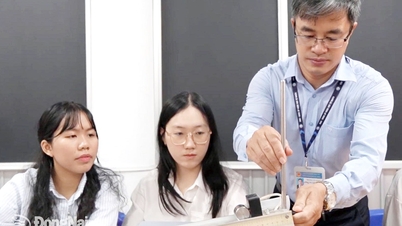

























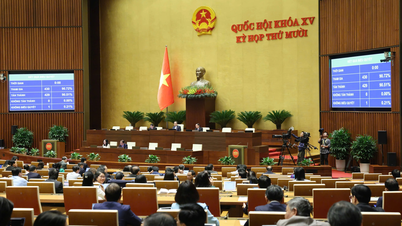

















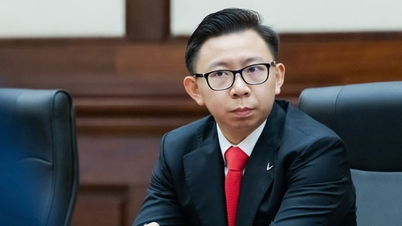
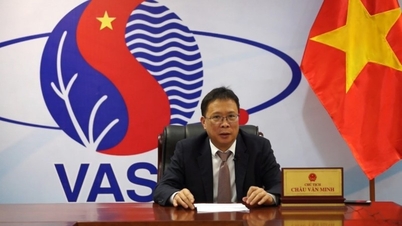



















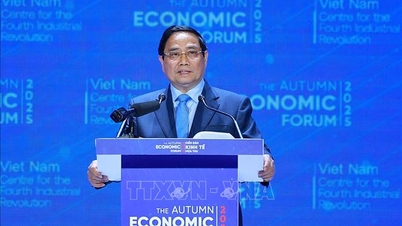


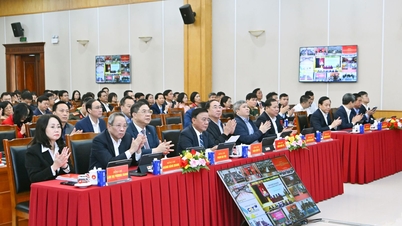


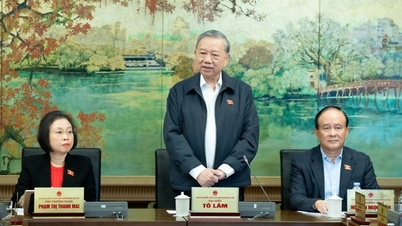






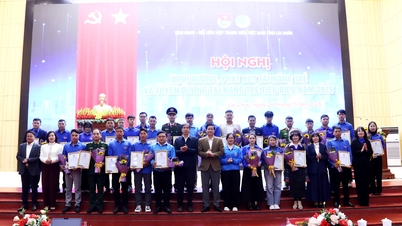


















Comment (0)